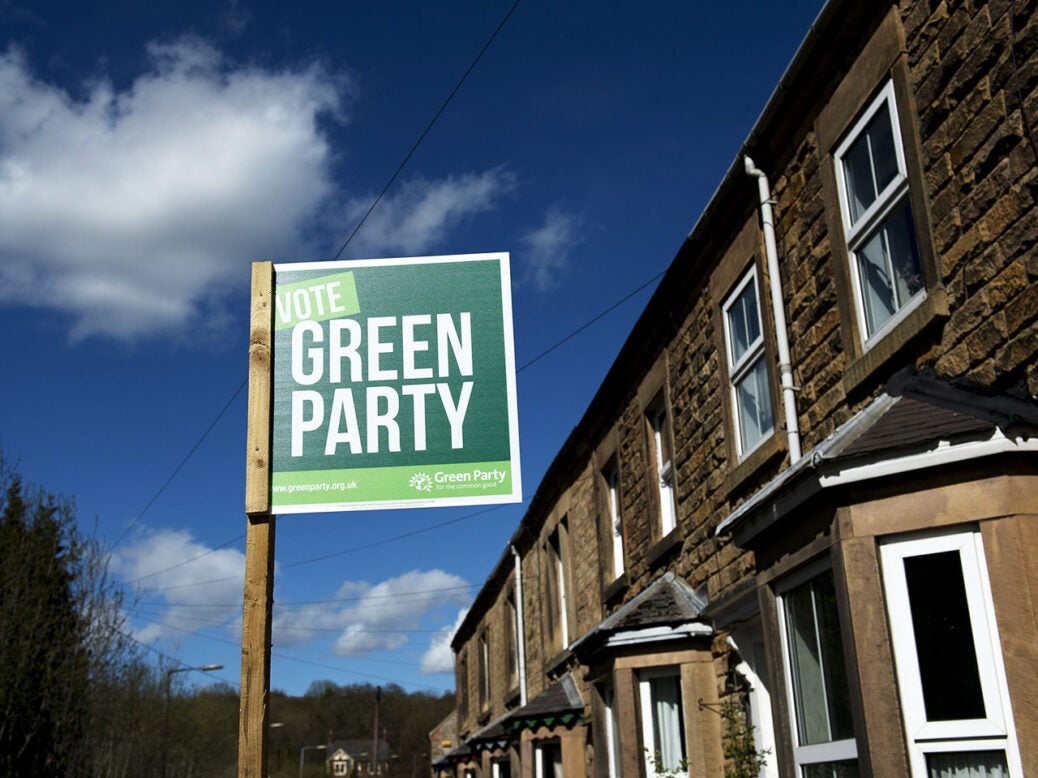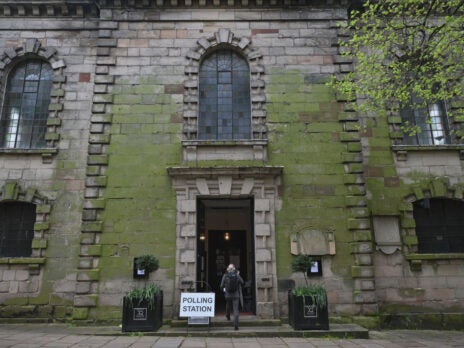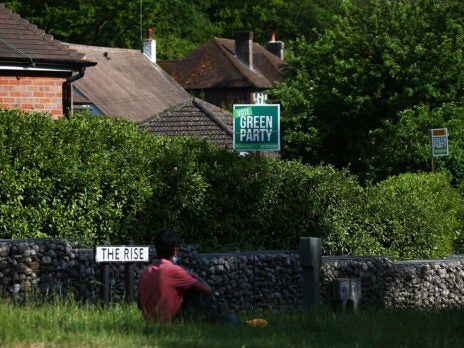
Whatever preconceptions you have about Green voters, throw them away now. In local elections, they are of no use.
The Greens’ surge in council seats in recent local elections has been impressive, and it looks set only to get better after 4 May. And yet, the areas in which they’re winning and why they’re doing so are not so promising for a party longing for the national spotlight.
In the last ten years we’ve seen the rise of Ukip, the burst of Ukip, and the steady, steady growth of the Greens. In 2011 the Greens won 79 council seats. In 2015 that number rose to 87, and in 2019 it jumped to 273 seats. The party’s rise has been more sustainable than Ukip’s, though it’s also much harder to pigeon-hole their voters than Ukip’s.
Of the 98 wards won last year by the Greens, 28 were won from the Tories and 36 were won from Labour. One was won from an independent, and the rest were previous holds. You might expect those Green wins to be concentrated in degree-heavy, diverse parts of urban England, but no. According to the 2021 census, 28 per cent of all Britons have a degree. In those Green-won wards it was exactly the same. Chart it, and there’s little to no correlation.
So while Ukip's gains were confined to whiter, more deprived, and older areas than Britain's average, the Greens' gains have been wider spread. Last year they won in parts of Oxford and Hackney where graduates made up more than 50 per cent of the population; they also won in parts of Tyneside, Hastings and the east side of the Pennines where graduates were few and far-between.
What all this shows is the Green Party's capacity to appeal to voters, perhaps even more broadly than the two main parties. But thinking cynically, it exposes the risk that the party tries to be "all things to all men". Favourability towards the Greens is high, though not quite as high as towards today's Labour Party. The Green brand is also the least disliked of all the main parties. Meeting voters as I do, I know plenty regard the Greens as an inoffensive alternative in this era of intense apathy.
[See also: The 2023 English local elections – what to watch out for]
Is that enough to make people vote Green? With enough organisation, door-knocking and data collection, anything is possible. The local elections this year will bring an expansion in Green councillors. We are seeing increasing Green challenges in typical inner city wards represented by Labour incumbents. Council seats in Sheffield Central are regularly won by Green candidates, as in parts of Lancaster and Norwich. Whether that extends to other cities is yet to be seen. I suspect that if there is a throng of Labour voters just waiting to go Green, they are there, but perhaps converting them would be easier once Labour is in government.
In Brighton, however, Labour are bullish about picking up Tory votes, and in doing so becoming the largest party on the council, relegating the Greens to second. This in the place with the country's sole Green MP.
In rural Leave-voting Suffolk, meanwhile, where the Greens were pretty far behind until 2019, the general expectation is that they will pry the district from Tory control for the first time. That would be the Green's first countryside council. In 2019 they were winning certain villages and rural areas with as much as 80 per cent of the vote.
[See also: Can Brand Rishi Sunak save the Tories at the polls?]
That the Greens are on course to take a Tory council while losing their grip on Brighton and Hove doesn't bode well for the party's sustainable growth. There will come a time when the Greens, offered that prized national stage, will be obliged to set out their stall – to define themselves based on more national, specific issues that local election voters aren't presently associating them with. Like new presidential candidates in America or France, they will find their position has to evolve to "some things for some people". We would then inevitably see the party start to fall back in certain council areas while advancing further in others.
The question will be which way do they go – the anti-nuclear yet hawkish centrism of Germany's Greens, or something more along the lines of a "left alternative" to Labour? The day to make that decision isn't now. But with every local election gain, it gets closer.
[See also: Britain Predicts]


